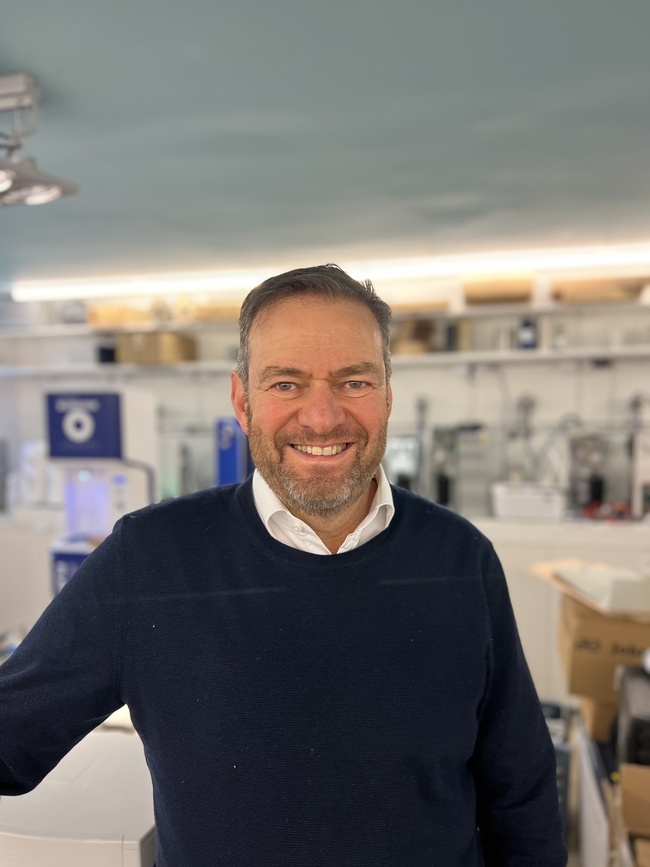As Earth Day 2023 approaches, Bluewater calls for increased action from governments and businesses to address environmental challenges
The global Swedish water purification and beverage solutions provider for consumers, Bluewater, and HORECA, public dispensing, describes new evidence of how ‘forever chemicals’ are linked to female infertility as terrifying. The company called on governments, businesses, and public society to invest in solutions to rid the planet of PFAS and related chemicals.
“It is simply terrifying to live in a world where nearly everyone has chemicals like PFAS stored in their bodies and learn that women with high levels of the ‘forever chemicals’ in their blood have a 40 percent lower chance of becoming pregnant within 12 months of trying for a baby,” said Bengt Rittri, founder and CEO of Bluewater. He urged businesses, governments, and citizens around the world to invest in harnessing human ingenuity to ensure a better future for coming generations.
On Saturday, April 22, 2023, most everyone who cares about the environment around the world celebrates Earth Day, which has been held annually since 1970 following the terrible Santa Barbara, California oil spill in 1969, and aimed at encouraging people to protest for environmental reform.
“Despite rising public concern, the world in 2023 faces multiple environmental threats, from ocean and land pollution to degradation of our life-essential drinking water by plastic and chemical contamination,” said Rittri, a Swedish environmental entrepreneur.
Rittri noted that the Centers for Disease Control and Prevention reports that PFAS chemicals that have been used in consumer products and linked to cancer, liver damage, and increased risk of asthma and thyroid disease, is in the blood of 97% of Americans.
Although banned by many countries from consumer products like nonstick cookware and waterproof coatings in the early 2000s, PFAS chemicals persist in the environment, including drinking water. The Washington-based Environmental Working Group, which monitors toxic chemicals, has estimated that 2,000 U.S. communities have levels of PFAS in their drinking water that were above limits set by the US Environmental Protection Agency (EPA).
Ensuring people have safe access to drinking water demands investment by business. Rittri notes that Bluewater water purification appliances have been verified in independent testing to efficiently remove PFAS ‘forever chemicals’ from tap water, providing some measure of peace of mind to consumers by removing up to 99.99% of health-threatening microplastics and chemicals such as toxic PFAS from tap water. Bluewater’s tests were carried out the company’s laboratory at the Swedish Institute of Technology (KTH) and verified by the independent worldwide bio-analytical testing group Eurofins.
Fear of what is in tap water has driven millions of people worldwide to bottled water, yet that is no guarantee they are drinking water free of chemicals. A study published in the journal Water Research and led by Johns Hopkins University researchers, detected PFAS substances in 39 out of more than 100 bottled waters tested. And in 2022, a French study showed that 78 percent of French bottled mineral water tested in the study in a report published by environmental group Agir pour l’environment contained microplastics, which have been found by other studies to contain or to have been coated by PFAS chemicals.
“For anyone who cares about their health and wellbeing, these findings are frankly horrifying because we do not know enough about threats posed by chemicals in plastic,” said Bengt Rittri He said the scale of the issue was underlined by statistics indicating that 50 percent of people in France alone consume bottled water every day, with annual sales topping 8.8 billion liters in 2019.
“I’ve spent the past 40 years of my life working as an entrepreneur bringing technologies to market that help the health and wellbeing of people, from indoor air purifiers to water purifiers. So I’m acutely aware there is no silver bullet to tackle the expanding climate emergency and chemical contamination of the water we drink, the food we eat, and the air we breathe, yet I remain optimistic that we can harness our ingenuity to tackle the issues if we act faster as individuals, businesses and government’s with in investing in the future of the planet ,” said Mr. Rittri.

